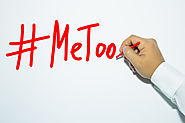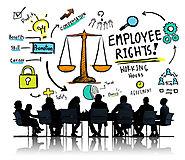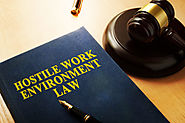-
About
- About Listly
- Community & Support
- Howto
- Chrome Extension
- Bookmarklet
- WordPress Plugin
- Listly Premium
- Privacy
- Terms
- DMCA Copyright
- © 2010-2025 Boomy Labs

 Matthew A. Dolman
Matthew A. Dolman
Listly by Matthew A. Dolman
Many employment laws exist on the federal and state levels that aim to ensure workers are compensated fairly and are free from unlawful discrimination and harassment. Unfortunately, Too many employers in Florida violate these laws and workers suffer as a result. If your employer has violated an employment law, you have legal rights to recover for any financial losses or other pains you may have suffered.
Taking on an employer in a legal claim can be intimidating, however. Fortunately, the experienced employment attorneys at the Dolman Law Group are here to help anyone who believes their employment rights have been violated. We will evaluate your situation, advise you of your options, and stand up for your rights throughout the legal process. Please call our office at (727) 451-6900 for a free consultation if you believe you may have a case against your employer.
(click on this list to learn more)
Source: https://www.dolmanlaw.com/legal-services/employment-law-attorneys/

Were You Sexually Harassed at Work? We Can Help
Sexual harassment is still pervasive in workplaces across the United States. Sexual harassment is a form of sex discrimination prohibited in employment by Title VII of the Civil Rights Act of 1964, as well as the Florida Civil Rights Act (FCRA). While these laws have been on the books for decades, reports of sexual harassment on the job continue.
Harassment can occur in any type of workplace, even if an employer has clear policies against such conduct. Sexual harassment can affect a victim’s financial situation, career, and quality of life. Harassment can cause mental anguish and can even cause someone to miss work or ultimately, quit their job if the harassment will not stop. The financial and emotional losses from sexual harassment can be serious, which is why the law gives victims the right to hold employers accountable.
(click on this article to learn more)

How Do I know If I’m Owed Overtime?
It’s payday and you’ve worked a total of 45 hours that week. You look at your pay stub and realize you weren’t paid overtime pay for those last five (5) hours.
Isn’t your employer required to pay you time and a half compensation for those 5 hours?
According to federal law, it depends on three things:
-how much you make,
-what you do day-to-day at your job,
-and what your job position’s skills typically are.
How does salary factor into overtime pay?
The Fair Labor Standards Act of 1938 (FLSA) dictates the standards by which employers are held when it comes to unpaid overtime compensation. Those standards state that any worker who is eligible, and who works more than forty (40) hours in a week, is entitled to compensation at a rate of one and a half times their usual hourly rate for any hours over 40 per week.
(click on this article to learn more)

If you believe that your employer has treated you unlawfully or unfairly in any way, you should never hesitate to consult with an experienced employment law attorney to discuss your situation. Employees should never have to deal with wage and hour violations, discrimination, harassment, retaliation, or any other type of wrongful actions in the workplace. Victims of such actions have legal recourse under employment laws to receive compensation for their suffering.
(click on this article to learn more)

At the end of last year, there was an article published in the New York Times that illustrated how major companies are taking parental leave serious. Millennials are the biggest generation to hit the work force to date and they have high expectations for their future careers. They want to work for companies who offer accommodations for their employees that suit both genders. It will take a general 15 to 20 years for all companies to follow the pioneers of the workforce; however the competitive pressures in the labor market are pushing for greater independence and flexibility. These new ideals have the American economy in a tug of war with gender roles and the rise of two-income families
(click on this article to learn more)

Since the 1970s, states have increasingly recognized claims brought by employees who allege that their employment was terminated in violation of public policy. To varying degrees, all 50 states have adopted an employment “at-will” doctrine which allows an employer to fire or terminate the employment of one of their workers at any time and for almost any reason, or perhaps no reason at all. At-will employees can be fired for employment related problems as well as issues that are not directly connected with the employment.
There are, however, situations in which the firing of an employee may be considered a wrongful termination meaning an employee is wrongly fired by his or her employer.
(click on this article to learn more)

In modern times, too many people believe that sexual harassment is no longer a big issue in the workplace due to the increasing emphasis on gender rights. However, sexual harassment occurs every day in workplaces across the United States and within the state of Florida. Fortunately, Title VII of the Civil Rights Act of 1964[1] provides employees the right to be free from such harassment and further allows victims the right to hold employers liable for unlawful behaviors.
Main types of sexual harassment
When most people think of sexual harassment, they likely immediately think of a boss offering employment advantages in return for sexual favors or making threats based on a refusal of sexual advances. This type of harassment is often referred to as “quid pro quo” harassment, which means “this for that.” This is likely the most blatant form of sexual harassment as an employee may lose his or her job, get demoted, or suffer other losses as a result. If an employee brings a lawsuit for this type of sexual harassment, the employer may potentially be held strictly liable for the actions of the harassing supervisor.
(click on this article to learn more)

As the landscape of the modern employer-employee relationship changes, more and more people engage in non-traditional roles in the workplace. The Internet has allowed existing businesses to outsource tasks that were once performed in-house and has given workers more and more flexibility as to where and when they perform duties. As a result, the line between whether a worker is an employee or an independent contractor has become more blurred than it has been in the past.
The reason the distinction between employees and independent contractors is legally important is that certain federal and state laws create rights and responsibilities for parties who are in an employee-employer relationship. There is no bright-line rule used to make this determination, but rather a court will weigh a number of factors in order to classify a worker into one category or another. The factors[1] that are often considered by courts in making these determinations include:
(click on this article to learn more)

The federal Fair Labor Standards Act (FLSA) provides workers with powerful rights, yet most workers remain unaware of, or harbor misconceptions about, its protections. With the FLSA protecting 135 million workers in 7.3 million establishments nationwide, it is important to separate fact from fiction. Here is an overview of how the FLSA affects workers in Florida and elsewhere.
Fair Labor Standards Act 101
The United States Congress enacted the FLSA in 1938. The Act establishes the following standards for full-time and part-time workers in the private sector and in federal, state, and local government::
(click on this article to learn more)

Defining Sexual Harassment
Professionalism is the hallmark of a successful and efficient workplace but the standards of what we consider a professional work environment have shifted over the years. Office spaces have begun shifting from gray wastelands of cubicles to more open and accessible workspaces that mimic those used by companies like Google or Facebook.
Despite all this change, one concern remains the same throughout all workspaces and that is sexual harassment. Definitions of what constitutes unwanted sexual advances or inappropriate behavior have changed as the #metoo movement collectively puts its foot down and says enough to unprofessional and unethical sexual behavior in the workplace.
(click on this article to learn more)

Gender Discrimination in Employment
In the past decade, there have been many breakthroughs for different groups that have been discriminated against in the workplace. Now more than ever, the use of much less discriminatory employment practices has become more widespread. However, this doesn’t mean that all employers are not discriminatory in their hiring practices.
One of the most commonly discriminated areas in the hiring process is gender. It’s no secret that certain fields of the workforce have been attributed to certain genders that typically dominate them. A woman may not be considered viable for a job as a bouncer at a club or a man may be seen as ill suited to work in child care. Regardless of the gender, it is illegal to discriminate based on it in the hiring process and therefore can result in a lawsuit.
(click on this article to learn more)

Sexual Orientation and Gender Identity Discrimination Law
The past decade has seen history made with the legalization of same sex marriage and several states enacting various laws to protect members of the LGBT community. Various aspects of our society still discriminate against LGBT individuals through housing, healthcare, education and employment.
Anti-discrimination law in regard to sexual orientation and gender identity is a tricky thing. It all depends not only on what state you are in but sometimes even the city too. Also there are different levels of protection extended to those discriminated against because of their sexual orientation or gender identity depending on which state or municipality they are in.
(click on this article to learn more)

What Kind of Questions are Illegal in an Interview?
Job interviews are conducted to get the measure of a prospective employee through interpersonal questioning. If you’ve made it as far as the interviewing stage, its safe to say that an employer is at least interested in you but now they want to know more and in person. This can be a terrifying prospect for some people in a world that likes to make judgments about people based on race, age, gender, sexual orientation, etc.
Luckily, there are laws put in place to prevent discrimination within the workplace so that everyone is guaranteed a fair and equal chance to employment. As part of these anti-discrimination laws, an employer cannot ask certain questions during an interview. This is because certain questions inquire into certain aspects of an interviewee’s life that should have no bearing on whether or not they should be employed.
(click on this article to learn more)

Racial Employment Discrimination is Illegal
We have come a long way as a country when it comes to stopping racial discrimination in the workplace. Thanks to Title VII of the Civil Rights Act of 1964, racially discriminatory employment practices are very much illegal on the federal level. On top of that, Florida state law works to prevent racial discrimination too to allow those that experience it an opportunity to seek legal action.
What is Racial Employment Discrimination?
Most of the time racial discrimination in the workplace hardly needs to be pointed out to who its happening to since it can be very frustrating and emotionally compromising. Sometimes, racial discrimination can be much more subtle and fly under the radar so it’s important to maintain a good awareness of the various ways an employer can discriminate. Racial employment discrimination can be defined as the treatment of a specific employee differently because of their race. Typically this treatment will generally be a negative force on their state of employment. For example, a black employee might notice that a white employee that has been for the company half as long as them has received a raise in pay higher than them for the same position.
(click on this article to learn more)

Investigating Discrimination in the Workplace
Discrimination in the workplace is much more common than most are led to believe. The Equal Employment Opportunity Commission reports that 84,254 workplace discrimination charges were filed with the federal agency nationwide during fiscal year of 2017.
All this discrimination in all of its various forms can lead to the creation of what is called a “hostile work environment”. Not only is this kind of discrimination ethically bankrupt but it is also unprofessional and not conducive to a productive workplace.
What is a Hostile Work Environment?
The term “hostile work environment” may seem self explanatory. It’s true that in a broad sense, a hostile work environment is an employment setting made uncomfortable by behaviors, attitudes, and policies of employers and coworkers.
However, it is important to note that a in order for a workplace to be classified as a hostile work environment, there are several sets of criteria that must be satisfied if one wished to make a harassment discrimination claim with the Equal Employment Opportunity Commission or EEOC.
(click on this article to learn more)

The #MeToo movement has reminded all of us that sexual harassment remains an enormous problem in the workplace and the public at large. On December 12, 2017, Governor Rick Scott emphasized the public significance of the issue when he signed Executive Order 17-319 directing all state agencies to train employees on sexual harassment prevention, develop adequate procedures for addressing sexual harassment in the workplace, and notify all employees of the State’s policies for investigating and reporting workplace sexual harassment. The governor’s order sent a clear signal that Florida law does not tolerate sexual harassment in any form.
But still, sexual harassment occurs, damaging lives, careers, and worker confidence. In this blog post, we discuss Florida’s workplace sexual harassment laws, and what to do if you have been the victim of sexual harassment.
(click on this article to learn more)

Clearwater injury attorney Matthew Dolman, is a highly regarded advocate for injury victims. He was selected by his colleagues as a Florida Superlawyer published by Thompson Reuters. Matthew is a lifetime member of the Million Dollar Advocates Forum and the Multi-Million Dollar Advocates Forum.
Matthew handles personal injury claims throughout the State of Florida.